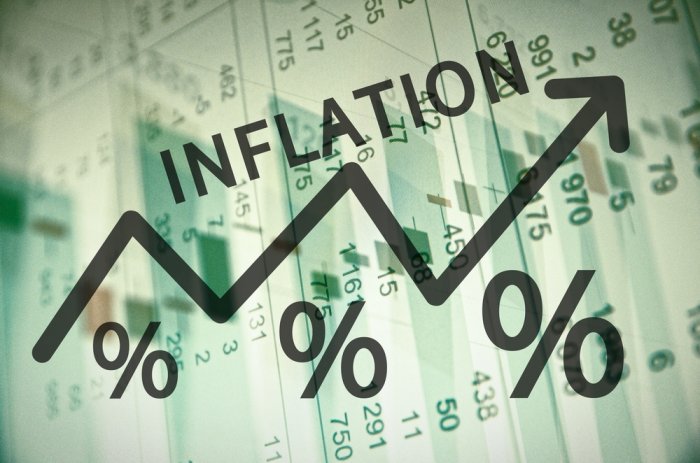Inflation 0.4% lower in December

shutterstock
Consumer prices in Hungary rose 2.1% year-on-year in December, the Central Statistical Office (KSH) said today. For the full year, consumer prices were up 2.4% in 2017. The pace of the December increase slowed down from 2.5% in November.
Food prices rose 3.5% and the price of tobacco and spirits jumped 6.8%. Clothing prices edged up 0.5% and consumer durable prices were 0.4% lower. Household energy prices increased 1.6%, the price of goods in the category that includes vehicle fuel edged up 0.8%, with vehicle fuel prices up 0.5%. Service prices were up 1.1%, national news agency MTI reports.
Core inflation, which excludes volatile fuel and food prices was 2.6% in December and 2.3% on average in 2017. Inflation adjusted for a basket of goods and services used by pensioners was 2.3% both in December and in the full year 2017.
In a month-on-month comparison, CPI was 0.0% as food prices edged up 0.1%, service prices were up 0.3% and the price of household energy inched up 0.2%. Prices of consumer durables and tobacco and spirits edged down 0.1% and clothing prices were 0.2% lower. Vehicle fuel prices fell 1.2%.
In a monthly analysis of inflation developments released after the publication of the KSH data, the National Bank of Hungary (MNB) said its measures of underlying inflation developments continued to be at or around 2% and remained below the level of core inflation.
The indicator for core inflation excluding the effects of indirect taxes was 2.2% in December, unchanged from the previous month. The indicator for demand-sensitive inflation, which excludes processed foods from core inflation, edged up to 1.8% from 1.7%. The indicator for sticky price inflation, which includes items for which retail prices vary, on average, no more than 15% a month, edged up to 2.2% from 2.1%.
The MNB noted that volatile items, such as food and energy, and demand-sensitive products made a similar contribution to price rises in December. Householdsʼ inflation expectations "remained at moderate levels" during the month, it added.
Analyst Péter Virovácz of ING Bank told MTI that while inflationary pressure could grow, he expected inflation to remain under the central bankʼs 3% target in 2018. He forecast 2.7% inflation for this year.
Dávid Németh of K&H Bank said inflation could slow down in the first quarter due to certain tax changes - such as the lowering of the VAT rate on fish and internet services, but inflation could accelerate again after the second quarter, approaching 3% by the end of December. He predicted 2.5% average inflation for 2018. Gergely Suppán of Takarékbank put this yearʼs average inflation at 2.7%.
SUPPORT THE BUDAPEST BUSINESS JOURNAL
Producing journalism that is worthy of the name is a costly business. For 27 years, the publishers, editors and reporters of the Budapest Business Journal have striven to bring you business news that works, information that you can trust, that is factual, accurate and presented without fear or favor.
Newspaper organizations across the globe have struggled to find a business model that allows them to continue to excel, without compromising their ability to perform. Most recently, some have experimented with the idea of involving their most important stakeholders, their readers.
We would like to offer that same opportunity to our readers. We would like to invite you to help us deliver the quality business journalism you require. Hit our Support the BBJ button and you can choose the how much and how often you send us your contributions.







